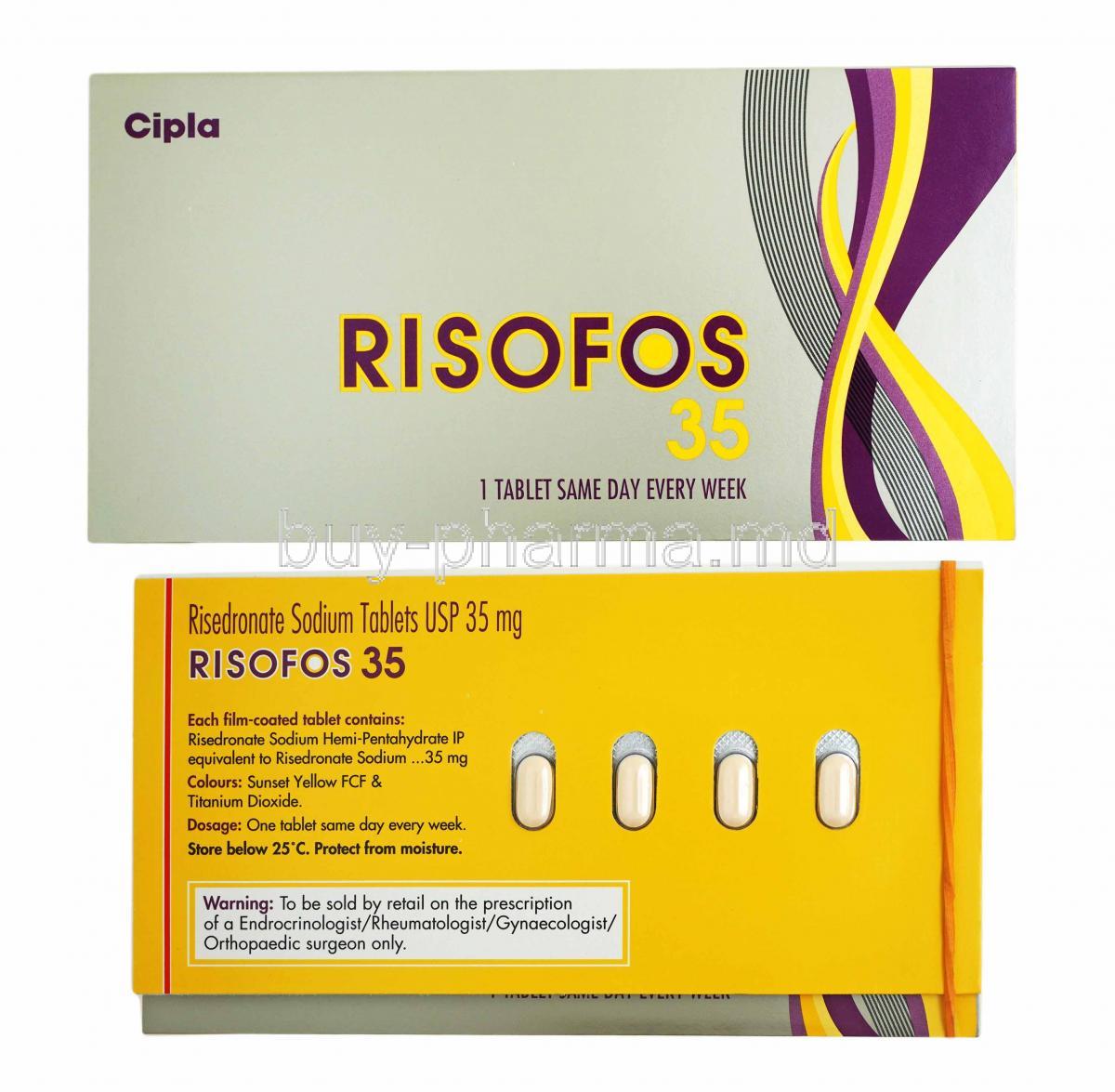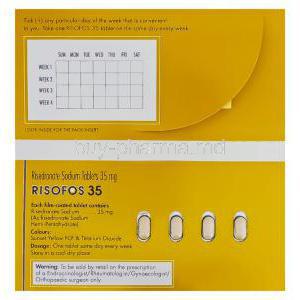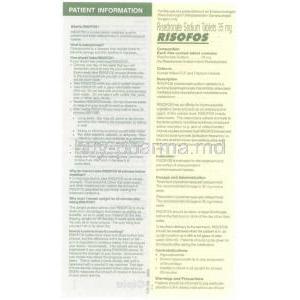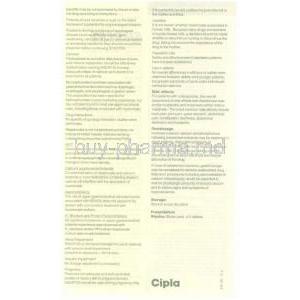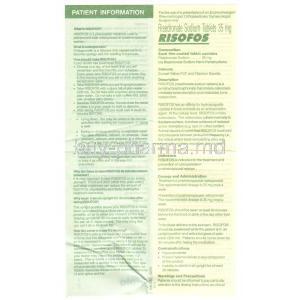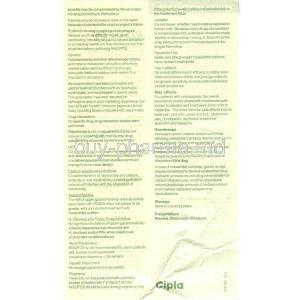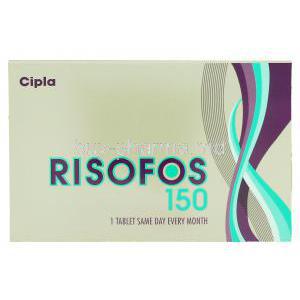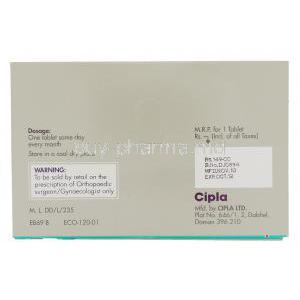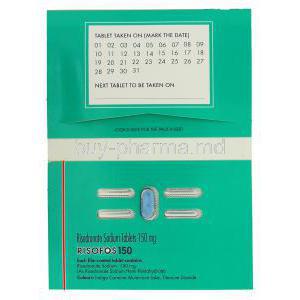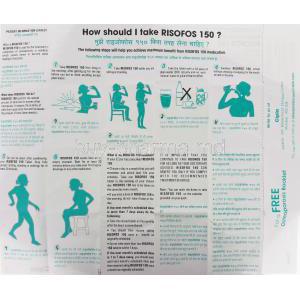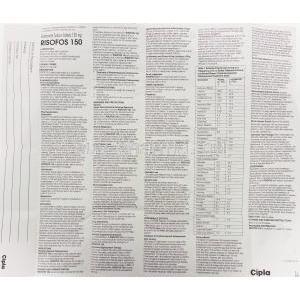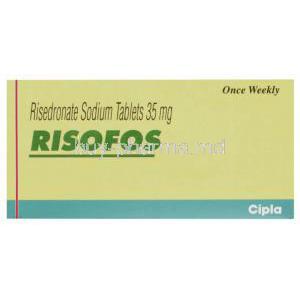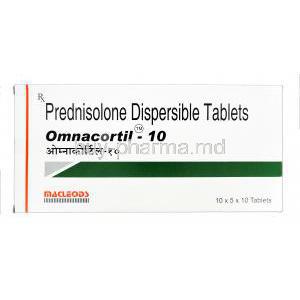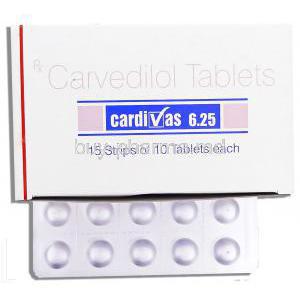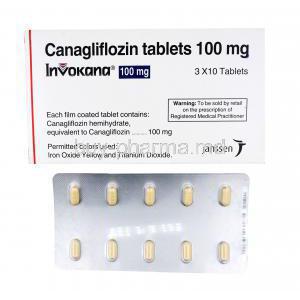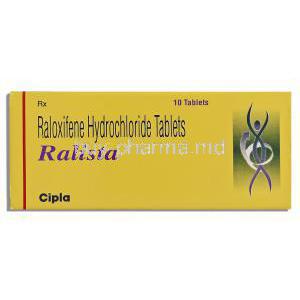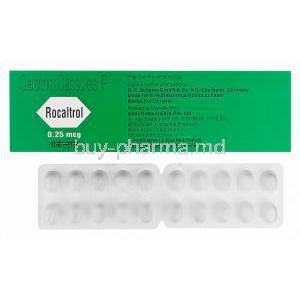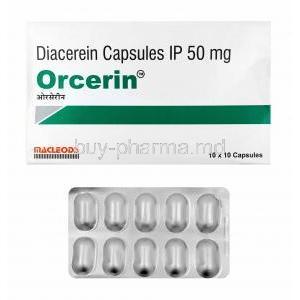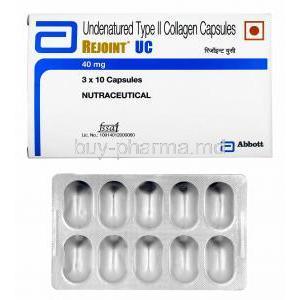Introduction
Risofos (Risedronate Sodium) is a highly effective bisphosphonate medication designed to improve bone health and strength. It works by inhibiting excessive bone resorption, thereby restoring skeletal balance and reducing fracture risk. This pharmaceutical is widely prescribed for osteoporosis and related bone conditions where bone density deteriorates over time.
By targeting the microscopic processes involved in bone turnover, Risofos strengthens bone microarchitecture and preserves mineral content. It is globally recognized under various brand names and formulations, making it accessible in diverse healthcare systems for both men and women at risk of skeletal fragility.
Composition and Formulations
The active pharmaceutical ingredient in Risofos is Risedronate Sodium, a potent nitrogen-containing bisphosphonate. It is available in multiple strengths such as 35 mg, 75 mg, and 150 mg film-coated tablets, catering to various dosing schedules—weekly, biweekly, or monthly.
Each tablet may contain inactive excipients like microcrystalline cellulose, lactose monohydrate, and magnesium stearate to ensure tablet stability and controlled release. Pharmacologically, it falls under the ATC classification code M05BA07, identifying it as an agent that directly acts on bone structure and mineralization.
How Risofos (Risedronate Sodium) Works
Risofos exerts its therapeutic effect by binding strongly to hydroxyapatite crystals in bone tissue, the primary mineral component of the skeletal matrix. Once incorporated, it selectively inhibits osteoclast-mediated bone resorption, preventing excessive bone degradation.
This process helps maintain or increase bone mineral density (BMD), leading to a significant reduction in vertebral and non-vertebral fractures. Compared to other bisphosphonates such as Alendronate and Ibandronate, Risedronate demonstrates a faster onset of action and favorable gastrointestinal tolerability in many patients.
Therapeutic Uses and Indications
FDA-Approved and Primary Uses
- Treatment and prevention of postmenopausal osteoporosis
- Management of osteoporosis in men
- Prevention of glucocorticoid-induced osteoporosis in long-term steroid users
- Treatment of Paget’s disease of bone, characterized by abnormal bone remodeling
Off-Label Uses
- Adjunctive management of metastatic bone disease to reduce skeletal complications
- Prevention of skeletal-related events in oncology patients
- Supportive therapy in hypercalcemia of malignancy
- Investigational use in secondary osteoporosis and osteogenesis imperfecta
Dosage and Administration
Recommended Dosage by Condition
For postmenopausal osteoporosis, the typical adult dosage is 35 mg once weekly or 150 mg once monthly. In Paget’s disease, a higher dose of 30 mg daily for 2 months may be prescribed. For glucocorticoid-induced osteoporosis, 5 mg daily is common.
Administration Guidelines
- Take on an empty stomach with a full glass of plain water.
- Remain upright for at least 30 minutes after ingestion.
- Do not chew or crush the tablet.
- If a dose is missed, take it the next morning after remembering; never double the dose.
Concurrent calcium and vitamin D supplementation enhances bone-building effects and should be maintained throughout therapy. Periodic evaluation of treatment duration is recommended every 3–5 years.
Side Effects of Risofos
Common Side Effects
- Gastrointestinal discomfort such as dyspepsia, nausea, or abdominal pain
- Muscle or joint pain
- Headache and mild dizziness
Serious Adverse Effects
- Esophageal inflammation, irritation, or ulceration if taken incorrectly
- Osteonecrosis of the jaw (ONJ)—rare but serious complication, especially post dental surgery
- Atypical femoral fractures with prolonged therapy
- Hypocalcemia due to suppressed bone turnover
- Severe allergic or hypersensitivity reactions
Long-Term Safety Considerations
Extended use of bisphosphonates may lead to excessive suppression of bone turnover. Therefore, physicians may consider “drug holidays” for patients under long-term therapy. Regular monitoring of bone metabolism markers and renal function is advisable.
Drug Interactions
Risofos absorption can be significantly reduced when taken with substances that contain divalent cations such as calcium, magnesium, iron, or aluminum. Therefore, antacids, multivitamins, and dairy products should be avoided within two hours of dosing.
Caution is warranted when combined with corticosteroids, as the risk of osteonecrosis increases. NSAIDs and proton pump inhibitors may elevate gastrointestinal irritation, while anticoagulants can raise bleeding risk. Proper timing of meals and spacing of medications are critical for optimal efficacy.
Warnings and Important Precautions
- Take exactly as directed to prevent esophageal injury or reflux.
- Undergo dental examination before starting long-term bisphosphonate therapy.
- Patients with preexisting gastrointestinal issues should exercise caution.
- Maintain hydration and sufficient calcium/vitamin D intake throughout therapy.
- Reevaluate necessity after 3–5 years to minimize potential skeletal risks.
Contraindications
- Hypocalcemia or disturbances in mineral metabolism
- Esophageal abnormalities or motility disorders
- Inability to sit or stand upright for 30 minutes
- Known hypersensitivity to Risedronate Sodium or excipients
- Severe renal impairment with creatinine clearance below 30 mL/min
Careful Administration and Monitoring
Continuous monitoring enhances therapeutic safety and effectiveness. Regular assessment of serum calcium and vitamin D levels helps maintain mineral balance. Bone mineral density should be periodically evaluated using DEXA scans to track treatment progress.
Dental checkups are advised to detect early signs of osteonecrosis, particularly in patients undergoing invasive procedures. Special caution is required in individuals with preexisting gastrointestinal or renal conditions, where dosage adjustments or alternative therapy may be warranted.
Use in Special Populations
Administration to Elderly Patients
The efficacy and safety of Risofos (Risedronate Sodium) have been extensively evaluated in elderly populations, particularly those suffering from postmenopausal and senile osteoporosis. Studies indicate that the medication effectively increases bone mineral density (BMD) and reduces vertebral and non-vertebral fracture risks in patients over 65 years of age. The pharmacological response in elderly individuals remains consistent with that observed in younger adults.
However, age-related physiological changes, such as decreased renal clearance and the presence of comorbid conditions, may necessitate clinical discretion. Renal function should be carefully assessed prior to initiation. In patients with mild to moderate renal impairment, dosage adjustment is generally unnecessary, though periodic monitoring is advised. The therapy’s benefits—fracture prevention and bone strengthening—must always be balanced against potential gastrointestinal or renal risks in frail patients.
Administration to Pregnant Women and Nursing Mothers
Risofos is classified as Pregnancy Category C. It should be prescribed during pregnancy only if the potential therapeutic benefit justifies the possible fetal risk. Animal studies have demonstrated that bisphosphonates can interfere with fetal ossification and skeletal mineralization, suggesting potential harm to the developing fetus.
As Risedronate may persist in the maternal skeleton for extended periods, there is a theoretical risk of fetal exposure even after discontinuation. Its excretion into human breast milk has not been conclusively established; however, due to the potential for serious adverse effects on the nursing infant, breastfeeding during treatment is not recommended.
When therapy is unavoidable in women of childbearing potential, adequate contraception should be advised. Clinicians should evaluate alternative non-bisphosphonate therapies in pregnant or lactating patients whenever feasible.
Administration to Children
The clinical data supporting the use of Risofos in pediatric populations remain limited. Its safety and efficacy have not been established in children and adolescents under 18 years of age. Pediatric bone metabolism differs significantly from that of adults, and long-term suppression of bone turnover could potentially affect skeletal growth and development.
Off-label use may occasionally be considered under strict medical supervision for rare pediatric bone disorders, such as osteogenesis imperfecta or secondary osteoporosis associated with chronic illness or corticosteroid therapy. In such cases, careful monitoring of bone density, growth patterns, and mineral balance is mandatory.
Overdosage
An acute overdose of Risedronate Sodium is uncommon but may lead to hypocalcemia and hypophosphatemia due to excessive inhibition of bone resorption. Gastrointestinal disturbances such as nausea, dyspepsia, or esophagitis may also occur.
Immediate management should include the administration of milk or antacids containing calcium or magnesium to bind unabsorbed drug and mitigate its effects. Supportive therapy should be provided to restore electrolyte balance. Inducing vomiting is contraindicated, as this may exacerbate esophageal irritation or mucosal injury. In severe cases, clinical observation and symptomatic management are required until the patient stabilizes.
Handling Precautions and Storage
Risofos tablets should be handled with care to maintain their integrity. They must not be crushed, split, or chewed, as such actions can alter the release characteristics and increase gastrointestinal irritation risk.
- Storage conditions: Keep at controlled room temperature (15°C–30°C).
- Protect from moisture, heat, and direct sunlight.
- Store in the original blister or container until use.
- Ensure tablets remain dry and intact before ingestion.
The typical shelf life ranges between 24 and 36 months from the date of manufacture. Expired medication should be disposed of safely following local pharmaceutical waste regulations to prevent environmental contamination or accidental ingestion.
Clinical Pharmacology
Pharmacokinetics of Risedronate Sodium demonstrate low oral bioavailability, approximately 0.6% when taken under fasting conditions. The compound is rapidly absorbed within one hour, although food and beverages significantly reduce its absorption rate.
- Distribution: Risedronate binds strongly to hydroxyapatite in bone tissue, where it exerts long-term effects on bone remodeling.
- Metabolism: It is not metabolized but remains chemically stable in systemic circulation.
- Excretion: Approximately half of the absorbed dose is excreted unchanged in the urine within 24 hours. The remaining portion binds to bone or is eliminated via feces.
- Half-life: Terminal elimination half-life ranges between 480 and 560 hours, reflecting prolonged skeletal retention.
Risedronate’s plasma protein binding is low (<24%), minimizing drug-drug interaction potential and ensuring predictable pharmacokinetics across patient populations.
Patient Education and Counseling Points
Patient adherence and correct administration are vital for optimal outcomes. Healthcare providers should emphasize the following points during counseling:
- Take the tablet on an empty stomach with a full glass of water upon waking.
- Remain upright (sitting or standing) for at least 30 minutes post-dose to prevent esophageal irritation.
- Avoid eating, drinking, or taking other medications during this interval.
- Do not take the tablet with mineral water, juice, coffee, or milk.
- Report any signs of persistent heartburn, jaw pain, or unusual thigh discomfort immediately.
- Attend regular follow-up visits to evaluate bone density and calcium status.
Adherence ensures consistent bone protection and minimizes the risk of future fractures. Lifestyle measures such as weight-bearing exercise, balanced nutrition, smoking cessation, and moderated alcohol intake complement pharmacotherapy and enhance bone resilience.
Summary and Key Takeaways
Risofos (Risedronate Sodium) remains a cornerstone in the management of osteoporosis and other metabolic bone diseases. Its ability to inhibit bone resorption provides measurable improvements in bone mineral density and reduces the incidence of fractures in high-risk populations.
However, long-term therapy requires careful monitoring for gastrointestinal and skeletal side effects. Individualized treatment duration, usually reassessed every few years, is essential to maintain therapeutic benefits while mitigating adverse outcomes.
Integrating pharmacologic therapy with non-drug strategies—adequate calcium and vitamin D intake, regular physical activity, and fall prevention—ensures a comprehensive approach to bone health preservation. Under medical supervision, Risofos delivers durable and scientifically validated benefits in the ongoing battle against osteoporosis and bone fragility.
Risofos, Risedronate Sodium FAQ
- What is risofos?
- How do you take Risofos 35?
- Is risofos 35 a steroid?
- What is risedronate sodium used for?
- When is the best time to take risedronate sodium?
- What foods should you avoid while taking risedronate?
- What is the side effect of risedronate?
- Is hair loss a side effect of risedronate?
- How long can I stay on risedronate?
- Can I take vitamin D with risedronate?
- Do you gain weight on risedronate?
- Can risedronate make you tired?
- How soon can I have coffee after taking risedronate?
- What is the success rate of risedronate?
- Is there an alternative to risedronate?
- Is there a connection between risedronate and heart issues?
What is risofos?
Risofos 35 Tablet serves to both treat and forestall the bone‑weakening disorder osteoporosis, especially when it emerges as a consequence of changes or prolonged steroid usage.
How do you take Risofos 35?
- Risofos 35 is best taken on a stomach waiting least 30 minutes before breakfast unless a doctor advises otherwise.
- Typically, one tablet per day, though the prescribing physician may adjust the regimen.
- Swallow the tablet whole with a glass of water; do not chew, crush or split it.
Is risofos 35 a steroid?
No
What is risedronate sodium used for?
Risedronate (risedronate sodium) falls under the bisphosphonate class of medications. It helps keep your bones as robust as possible. It can prove helpful whether you’ve already been diagnosed with osteoporosis or simply face a risk of the disease.
When is the best time to take risedronate sodium?
On an empty stomach
What foods should you avoid while taking risedronate?
- Tea
- Coffee
- Dair products
What is the side effect of risedronate?
Risedronate can trigger pain often felt in the bones, joints or muscles.
Is hair loss a side effect of risedronate?
Yes
How long can I stay on risedronate?
5 years
Can I take vitamin D with risedronate?
Yes
Do you gain weight on risedronate?
Yes
Can risedronate make you tired?
Yes
How soon can I have coffee after taking risedronate?
30 minutes or longer
What is the success rate of risedronate?
41%
Is there an alternative to risedronate?
- Fosamax
- Ibandronate (Boniva)
Is there a connection between risedronate and heart issues?
Risedronate might prove useful for a mutation linked to dilated cardiomyopathy (DCM) a heart disease that often affects younger individuals.

